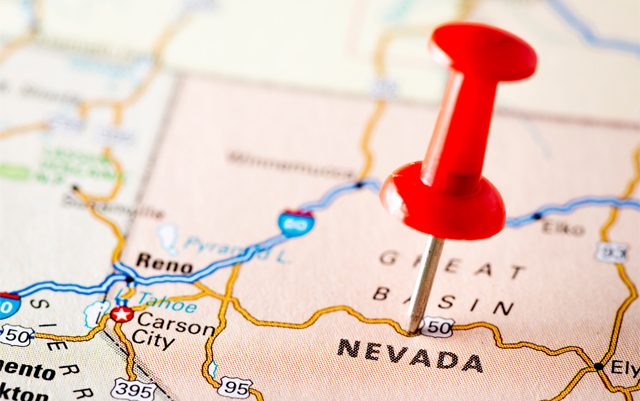Nevada was among the four states that passed a ballot measure to legalize recreational use of cannabis for adults 21 and older this past November, and on January 1st that law will go into effect. This means that starting the first of the year it will be legal for anyone over the age of 21 to possess up to an ounce of cannabis flowers and up to an eighth of concentrates, without fear of arrest.
It will be legal to consume marijuana indoors, in a private residence, but it will not be legal to do so outside or in a public place, including hotel rooms and casinos. However, while it will be legal for you to have marijuana and to smoke it, vaporize it, or however you choose to consume it – there will still be no legal way for people to access the plant.
“In Oregon, when they did an early-start program through their medical program, their taxes were $5 million a month, the first month that it was implemented,” Nevada Senator Tick Segerblom said. “And Oregon is about the same size as Nevada and actually has a much smaller tourism base, so I think $5 million is a very conservative estimate.”
There is fear that this will create a black market – but with talk of opening medical marijuana dispensaries to the recreational market until regulations have been determined and the new industry can take hold that might not be much of an issue at all.
If there is one thing I personally agree with Oregon about, it was their early-start program – and any state that is capable of doing this after passing recreational laws should consider it as an option. After all, part of the goal of legalization is to end the illegal sale of cannabis, so giving consumers a place to purchase it legally as soon as possible will make it happen that much sooner.
“The Department is already working to develop temporary regulations,” Deonne Contine, the agency’s executive director, stated in a news release following last month’s elections. “We intend to hold a public workshop very early in 2017 and then have our temporary regulations adopted so we can begin issuing licenses.”
The Department of Taxation is responsible for coming up with all the regulations pertaining to the cultivation, distribution and sale of cannabis – everything from what qualifications must be met for licensing and how applications will be considered and either approved or denied.
Luckily for those working in that department the law gives them until January 2018 to finalize all their regulations for the industry, but they are hoping to have the approval process underway by July if possible. With any luck, the state will decide that an early-access program similar to the one in Oregon is the way to go and the creation of their new industry will run relatively smoothly over the next year.






